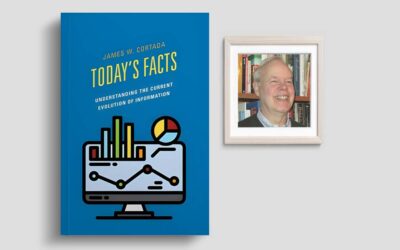Librarians are Rediscovering (and Questioning) Work Travel
Lauren Hays
I have been hesitant to start traveling to conferences again, but this week I am embarking on my first work trip in two years.
I will be attending a conference on instructional practices and am looking forward to reconnecting with colleagues, sharing work, and visiting a new city. Traveling to conferences used to be a regular part of my schedule, but now I find myself questioning that habit. With the increase in virtual conferences for librarians and other information professionals, perhaps many of you are feeling the same way.
As I realized I was questioning work travel, I put together a list of questions to help me make decisions about when to travel and when to stay home. Here are the questions I am asking myself about work travel:
- Is the event valuable enough to spend time away from family?
- Can I learn the same information in a virtual format?
- What is beneficial about the event being in-person?
- What is the best format for this content (in-person or online)?
- What is a virtual event lacking that I need?
- What professional connections do I need to foster? How is that best accomplished?
You may have your own set of questions to ask about work travel, and I encourage you to spend time thinking about them.
Some of us may find ourselves wanting to travel again and others may discover you can accomplish just as much virtually as attending a meeting in-person. Or perhaps you will find yourself still needing to be at some in-person events while moving other events online. This is where I find myself. I have decided that I prefer to travel for work less, but that there is also a lot of value to in-person gatherings. My hope is to find a middle ground that lets me be home more, while maintaining professional connections and staying active in the field.
Of course, with today’s minimal budgets for libraries and information centers, some of you may not have travel funds available. If that is the case, I encourage you to take advantage of the many virtual opportunities for professional development that will continue after the pandemic. The range of virtual events is exciting, and will help librarians and other information specialists continue to learn and grow in new ways.
Others of you may not have a choice, and you must travel to events. If that is your situation, I hope you reflect on how you can find ways to make it work best for your schedule. For me, this means taking a late flight back instead of staying an extra night in order to be home for the weekend. This may look very different for you.
No matter your situation, now seems to be a good time to pause and reflect on if we want our old work travel habits to return.
Lauren Hays
Lauren Hays, PhD, is an Assistant Professor of Instructional Technology at the University of Central Missouri, and a frequent speaker on topics related to libraries and librarianship. Her professional interests include information literacy, educational technology, library and information science education, teacher identity, and academic development. Please read Lauren’s other posts about skills for special librarians. And take a look at Lucidea’s powerful integrated library systems, SydneyEnterprise, and GeniePlus, used daily by innovative special librarians in libraries of all types, sizes and budgets
Similar Posts
The Importance of Professional Networking: Tips for Special Librarians
For many special librarians, the idea of professional networking can feel daunting, especially for those who thrive in quiet, research-driven environments. Lauren Hays shares her journey from reluctant networker to engaged community member, offering practical tips to help you build authentic professional relationships that benefit both you and your field.
Interview with the Author: Jim Cortada on Today’s Facts and the Evolution of Information
Dr. James Cortada, historian and senior research fellow at the Charles Babbage Institute, explores the history of information in his forthcoming book. By examining how information has been created, organized, and used over time, Cortada reveals patterns that continue to shape modern librarianship and knowledge management.
The Complicated Feelings Librarians May Have About AI
GenAI will affect how we do our work and the type(s) of work we engage in. In navigating the transformative potential of GenAI, we should engage in reflective practice that centers on our core professional values.
Recommended AI Literacy Frameworks for Special Librarians
These frameworks provide insights and approaches to help you determine the best ways to address build and promote AI literacy in your specific context.




Leave a Comment
Comments are reviewed and must adhere to our comments policy.
0 Comments